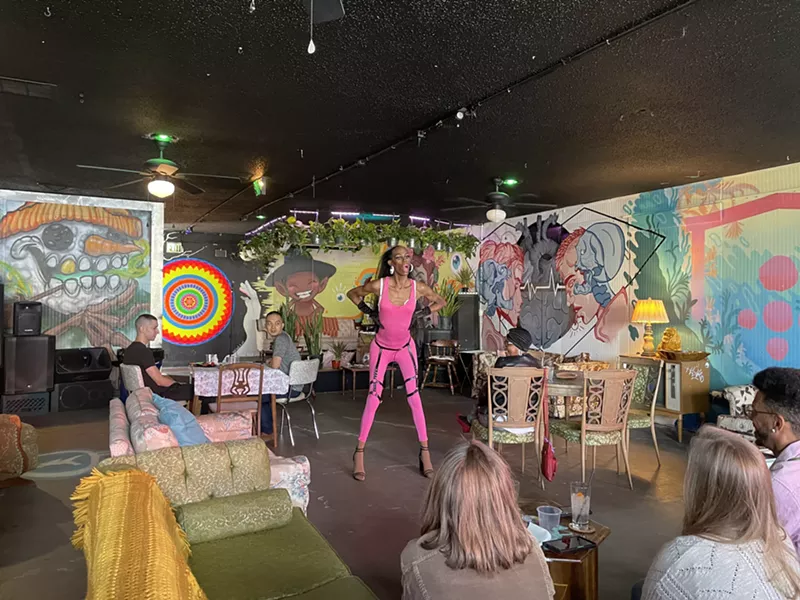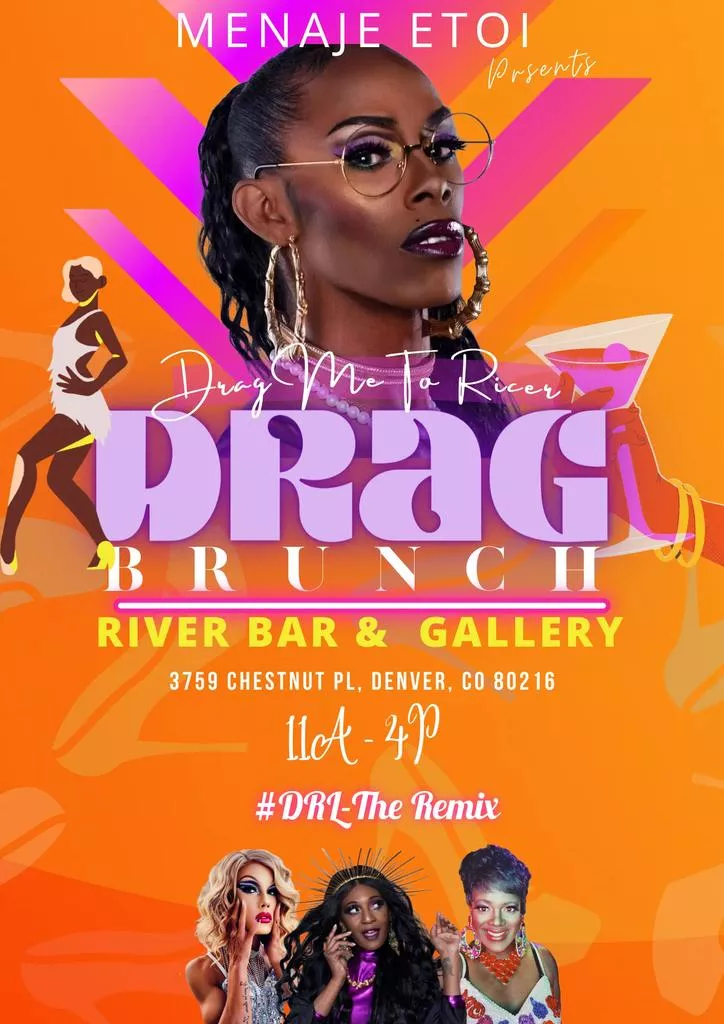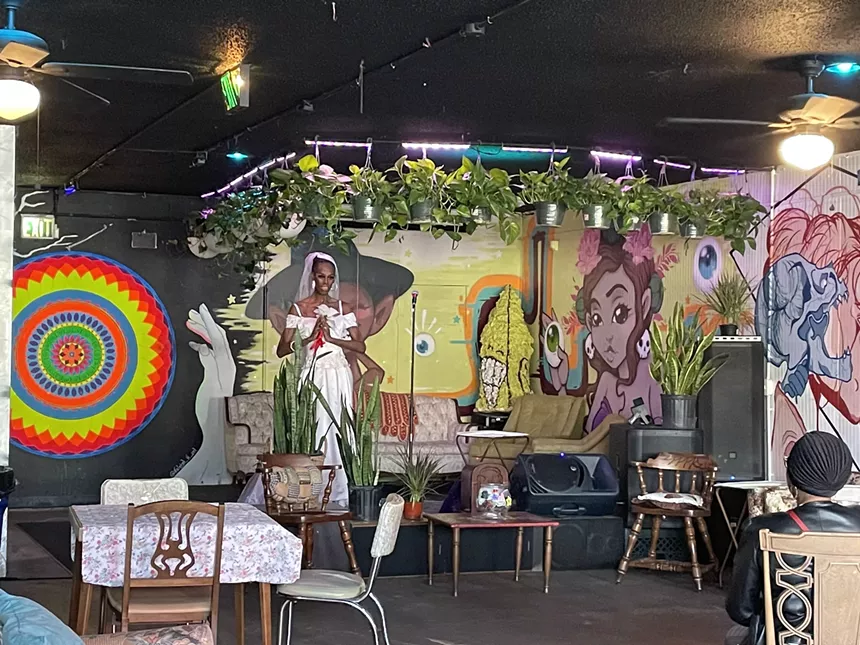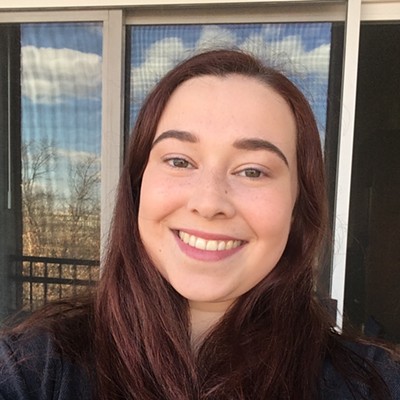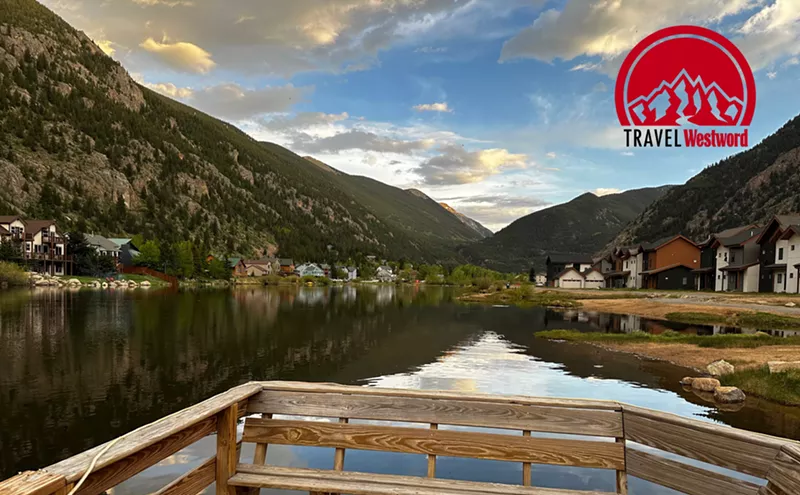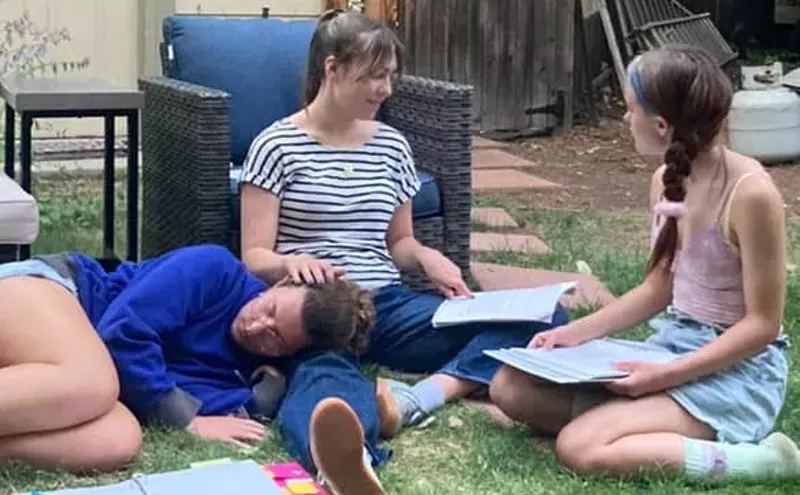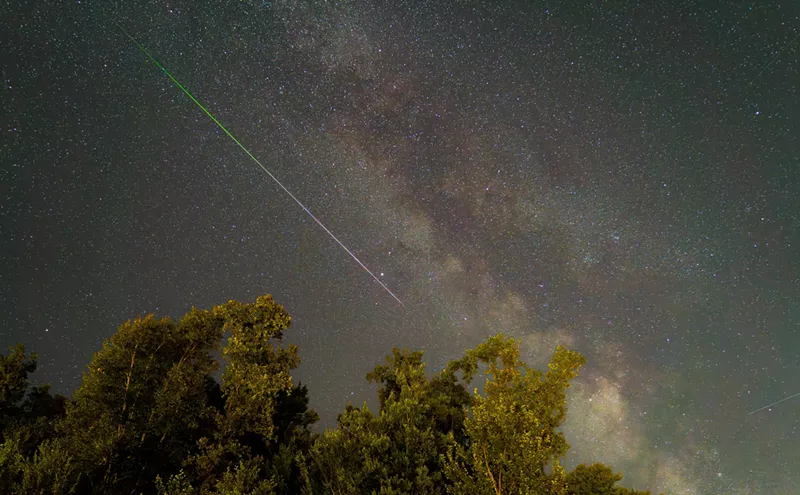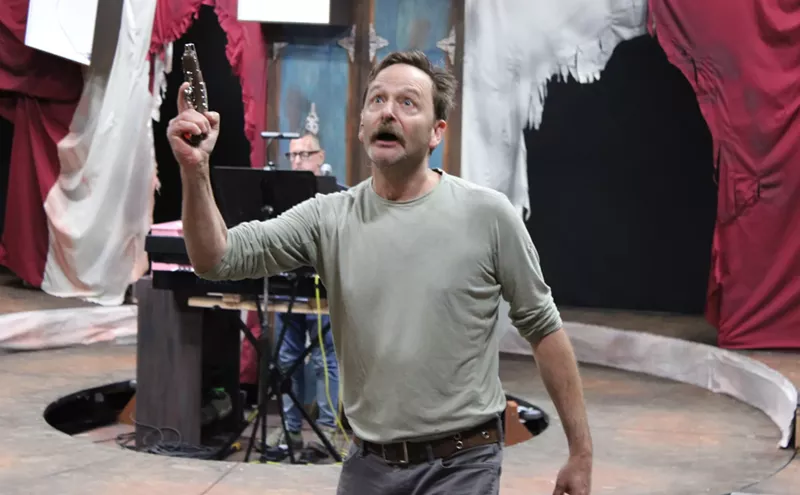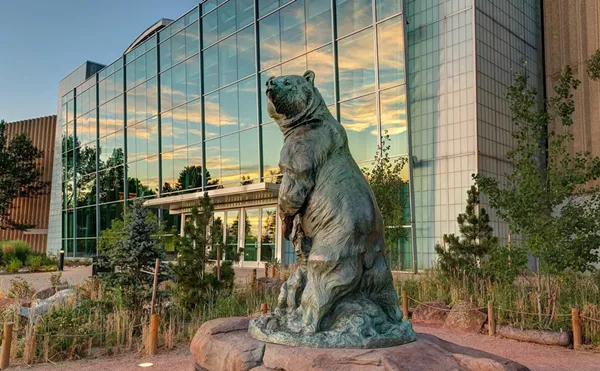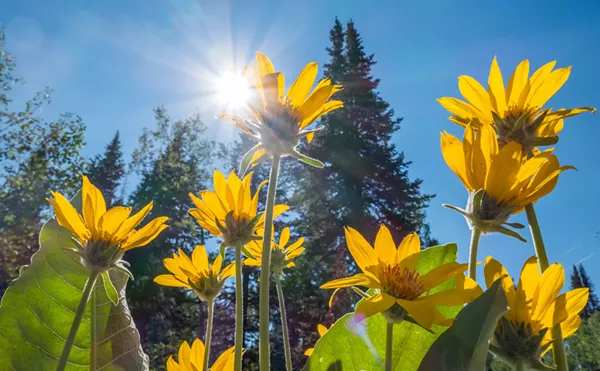"I'm a good entertainer," she says. "People like me, I'm pretty and I have a personality. I'm not doing karate in your bathrooms, I'm not doing drugs, I don't do any of the negative things that you see people do. What's the issue?"
E'Toi, also known as Reia Lucious off stage, was born in California but has lived in Denver since her early childhood. She has lived openly as a trans woman since she was a teenager, and first got into drag as a seventeen-year-old sneaking into the Brig (now Boyztown) with her friends. Now, after more than two decades of performing around Colorado and beyond, E'Toi finally has her own weekly drag show: a Sunday brunch called Drag M.E. to River, at RiNo's River Bar and Gallery. She's using the residency to create a space for queer entertainers of color to perform the genres of music we don't always see represented in drag: R&B, soul, hip-hop and gospel.
Many drag entertainers working in Denver, both then and now, stuck to performing Top 40 pop hits, but E'Toi, never one to follow the crowd, preferred music that spoke to her and her upbringing. "Urban music" has shaped her drag, she says. "Mostly with the emotion that's put into the music, especially R&B music and gospel," she explains. "By 'urban' I mean, not so pop. It's the music I grew up on, and my parents grew up on it. I use drag as my mental outlet, so it's very therapeutic for me, just to have that moment."
From the beginning of her career, other drag entertainers and producers tried to control the direction of E'Toi's drag, even down to her name. "I changed my stage name about eight years ago or so to Menaje E'Toi, because when I first started drag, I wanted my name to be that. The woman who was supposed to be my drag mother was like, 'I don't like it. It's too sexual. It doesn't read with my name,'" she remembers.
Changing her name rebooted her career; bookers thought she was a new queen on the scene. But those bookings came with certain restrictions. "It just felt like everybody wanted me to change everything about me," E'Toi says. "Like, 'You need to do your makeup like this to be on stage, you need to be like this to be on stage, you have to try and do this.' But I never did."
E'Toi says producers offering her bookings were not only trying to change her performance style, but also who she was off stage. Never one to mince words, E'Toi is not shy when it comes to opening up about her experiences in the drag world, both good and bad. Some saw that unbridled honesty as a threat. "I've always been a person that's not afraid to say stuff, and there was a time when I was like, 'I need to stop doing that. I'm ruining my career, people are hating me.' Because they feel like, 'You can't say anything to her or she's gonna post it on Facebook and talk shit.' But I didn't change," she says. "I think I changed for like three days."
Frustrated with the behind-the-scenes politics of drag, E'Toi stopped performing for several years. When she returned, she found that the landscape of Denver nightlife had changed dramatically. The bars she and her friends used to frequent, like Tracks and 60 South, had either rebranded or completely disappeared.
She realized that a sense of community in Denver drag was lacking, especially when it came to Black drag performers. "When I go out [in Denver], versus when I go out other places, it's just different," E'Toi says. "There's Black drag queens, but there's not a Black drag community, and there's enough queens here to have one."
While Denver has always had plenty of talented Black drag performers, E'Toi noticed that they weren't getting the same hosting or producing opportunities as their white counterparts.
"Our culture has been popularized and mocked, but our actual performers who represent are cast aside as 'just performers' — not able to host, not able to actually produce a show or given an opportunity to showcase our talents without going through hoops or doing something for Black History Month," she says. E'Toi found that the shows highlighting queer Black entertainers existed more as occasional special events rather than regular programming. "There's nothing that's regular," she notes. "Once a month is not regular."
Plus, a show with an all-Black cast doesn't necessarily mean a show highlighting urban music, she says. Unless the theme is a specific genre like hip-hop or gospel, it's just as likely that an all-Black drag cast will perform the usual Britney Spears and Lady Gaga mixes. And even when there are designated urban hip-hop nights, E'Toi adds, hip-hop is usually just mixed in with other genres.
"We have these hip-hop shows, and people will be like, 'Oh, it's hip-hop night!,' and you walk in and they're playing Taylor Swift," she says. "That's not hip-hop night. That's not R&B night." With few exceptions (notably, the Rainbow Factory party at Lucid every Sunday evening and fourth Friday night), there are almost no queer spaces in Denver for people to hear or perform hip-hop and R&B.
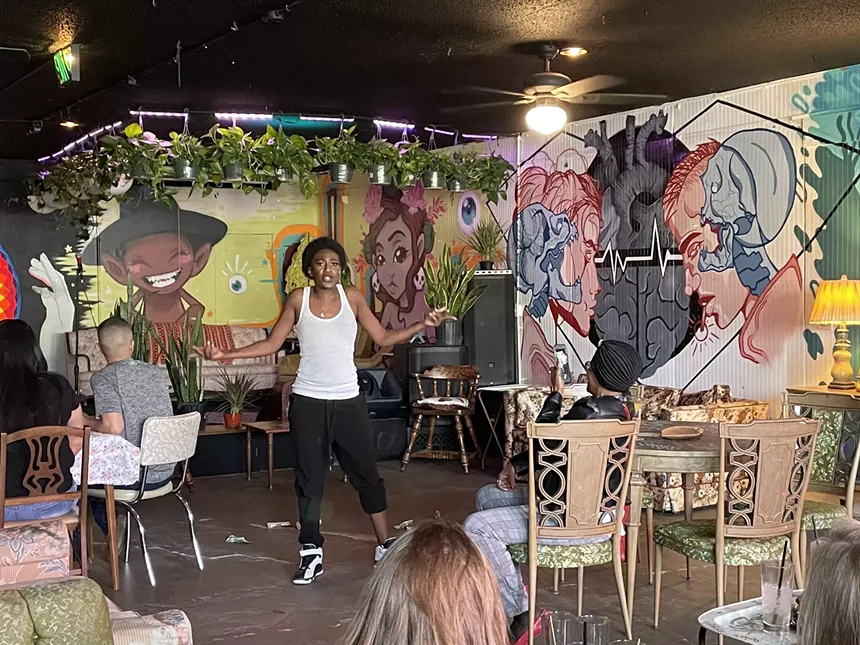
Drag queen Freda Slaves, pictured here in king drag, performs Childish Gambino's "Bonfire" at Drag M.E. to River.
Cleo Mirza
"I feel like the whole community loves hip-hop music, they just don't highlight it," she says. "At one point, they were saying, 'Well, that starts fights.' Does it? It's a way to express yourself. Yeah, the crowd might get hype, but that's nightlife."
E'Toi recalls the last time she performed at popular Capitol Hill gay club Charlie's, where management implied that she was "trouble." "My response was, 'Well, tell me when I've caused trouble. Because I can apologize and we can correct it, but I don't recall causing any trouble with you,'" she says. Charlie's did not respond to a request for comment.
While no one explicitly told her that she couldn't host a hip-hop-centric show, she says many venues expressed concern that an all-Black cast would be, ironically, too exclusive.
"I was never told that I couldn't have a hip-hop show, but they were like, 'So you want to have all Black performers? What about inclusion?'" she recalls. "This is inclusion! I do want other people, other races to perform in the show, but it would just be on the flip side of what it is now. ... I want to get my community in a space where they feel like this is our space and y'all are the guests, versus us walking in and feeling like we're the guests."
So E'Toi was willing to wait until she found a venue that would give her the respect and creative control she deserved. "I'm not going to beg you," she clarifies.
In March of this year, she finally found the right spot: River Bar and Gallery. While not explicitly a gay bar, River is a great example of what an allied space actually looks like. With queer staff, management, artists and entertainers, as well as gender-neutral bathrooms and a variety of zero-proof and regular cocktails, River strikes a tricky balance by being inclusive to all without focusing on one particular community.
"I just want people to know that River is an all-inclusive place," E'Toi says. "It's not just LGBTQ; they love everybody. I want to thank them for the opportunity, because this has been one of the most amazing experiences in my career.
"The crazy thing about it is, they reached out to me," she continues. "Red (Redden Mink, River's event coordinator) was like, 'Come up to my bar!' I don't know why, but in my heart I was like, 'You're putting on a show there.' But I didn't want to jump the gun, maybe they want me to be in a show. They were like, 'Well what I really want to do is, we have queens doing other shows once a month, but I kept every Sunday open for you, if you want it.'"
River was able to provide a structure without imposing restrictions, and that has made all the difference for E'Toi. "They've been so amazing," she says. "The ambience of the place is wonderful — the art, how they treat you. They're very welcoming, and I like that they're very communicative with everything, but they're letting me do it. I run the show, and they run the brunch." River even added two specialty cocktails named after E'Toi to its menu, a CBD mimosa and a spiked strawberry lemonade.
When River offered E'Toi a weekly residence, she didn't just come up with one show concept — she came up with four, so that even if you attend four weeks in a row, you'll get something different every time. On the first Sunday of the month she'll have a Gospel Brunch. Second Sundays will be DRL, a Total Request Live-inspired show where the performers are assigned songs based off of previous audience suggestions (which must be hip-hop, rap or R&B). Every third Sunday will be LUST, a sensual show starring two guest performers, which this month included a wildly entertaining presentation from GeeGee Norah Stephens, a representative for Kandi Burruss's sex toy line Bedroom Kandi. To close out the month is Superstars, a variety show highlighting entertainers outside of the drag world.
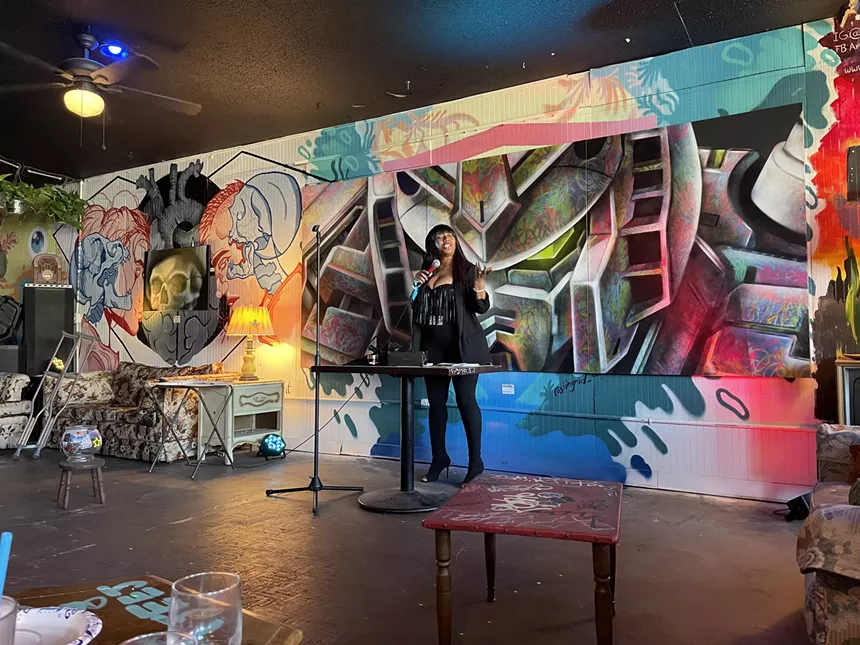
Bedroom Kandi rep GeeGee Norah Stephens gives an interactive presentation during E'Toi's last LUST show.
Cleo Mirza
"This month I have a Voguer, a poet and a recording artist," she says of her Superstars lineup. "Like, they don't let you sing there? Come sing with me. You have original music? Yup. You have poems? Yup. You know how to dance? Come on down and do it, and let me pay you to do it. Because not everybody was giving me that chance."
With a constantly rotating cast of entertainers of all kinds, you'll never see the same Menaje E'Toi show twice. But what you will get every time, guaranteed, is real urban music and one hell of a show.
Drag M.E. to River Brunch, River Bar and Gallery, 3759 Chestnut Place, Sundays from 11 a.m. to 4 p.m. Entry is $20 per person at the door. For more information, follow Menaje E'Toi and River Bar on Instagram.

